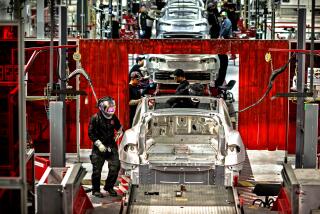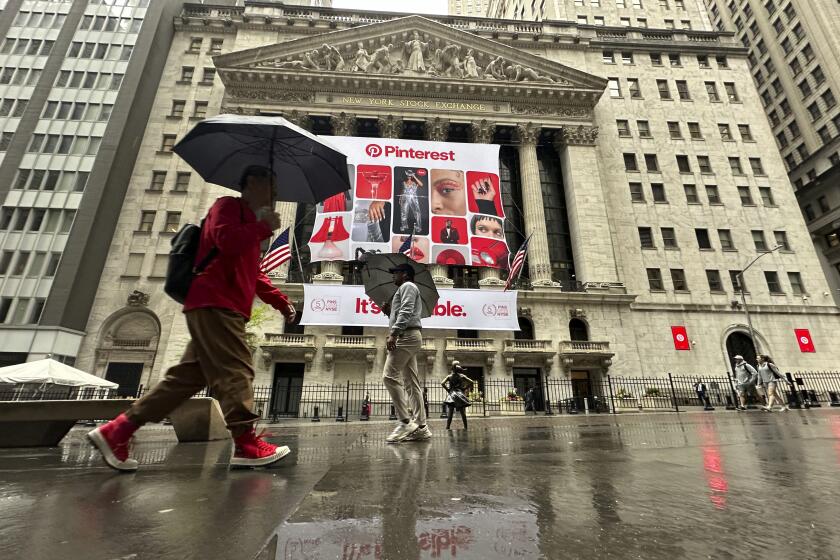Imports Hurt Steel Industry, Panel Rules
A U.S. trade panel ruled Monday that foreign imports pose a serious threat to the U.S. steel industry, paving the way for protective measures that critics fear will further increase trade tensions and weaken the global economy by raising costs.
In a move applauded by financially strapped U.S. steel makers, the International Trade Commission ruled that a dozen product lines accounting for 80% of all steel produced in the U.S. had been severely hurt by cheaper imports. The six-member commission is required to submit recommendations by Dec. 19 to the president on possible remedies, which could include imposing quotas or tariffs that would raise the costs of foreign steel.
President Bush is expected to approve any such measures because he initiated the ITC investigation last summer, when beleaguered steel makers said they were being wiped out by cheap imports from government-subsidized manufacturers in Asia, Europe and Latin America.
The case was filed under Section 201 of U.S. trade law, which allows the government to take steps to protect domestic firms from a surge of imports.
“Today’s action recognizes that the U.S. industry has suffered for years because of unfair imports --the consequences are all around us,” said Peter D. Southwick, president and chief operating officer of steel maker Ispat Inland Inc. “Since the beginning of this year alone, nearly 26,000 steelworkers have lost their jobs, the number of companies filing for bankruptcy has reached 25 and steel prices have continued to fall.”
The Bush administration also is trying to orchestrate a voluntary global reduction in steel output. Steel prices have been depressed since the 1997 Asian financial crisis, when demand collapsed, leaving a global glut.
Pittsburgh-based USX-U.S. Steel Group, the country’s leading steel maker, announced Monday it suffered a third-quarter loss and warned of even weaker fourth-quarter shipments because of the slowing economy. The firm’s loss was $23million, or 28 cents a share, compared with net income of $19million, or 19 cents, a year earlier. Sales rose to $1.65 billion from $1.46 billion because of the acquisition of a steel mill in Slovakia last year.
But David Phelps, president of the American Institute for International Steel, called the ITC ruling a “protectionist” action that could “spark a trade war with our allies and our trading partners just at the time when many of them are weakening or faltering or already in recession.... You couldn’t put together a worse scenario for the world economy.” He blamed the U.S. industry’s problems on domestic overcapacity, not foreign competition.
Economists agreed that the ITC ruling could hurt an already weakened U.S. economy by protecting steelworkers at the expense of a much broader steel-consuming sector that includes automobile and machinery manufacturers and construction companies. The American Institute for International Steel says there are 50 steel-consuming jobs for every steel-industry job in the U.S.
“If you bring in more protection for the steel industry, you hurt somebody else,” said James Glassman, senior U.S. economist for Chase Manhattan Bank.
“If you get into a trade war, at the end of the day, it can sink everybody.”
Brink Lindsey, director of the Cato Institute’s Center for Trade Policy Studies, speculated the Bush administration was counting on a favorable steel industry ruling to win domestic support for an ambitious trade agenda that includes the launch of a new round of global trade talks at next month’s meeting of the World Trade Organization and passage of a trade promotion authority bill. That authority would give the president the power to negotiate trade agreements that can be approved but not amended by Congress.
But Lindsey said the U.S. may have undermined its own market-opening efforts by launching a “winning domestic political strategy” that could “poison the waters of negotiations” with foreign governments. “There are plenty of leaders looking for an excuse for these trade negotiations to fail,” he said.
Gary Hubbard, a spokesman for the United Steelworkers of America, said the ITC ruling has not changed his union’s staunch opposition to a trade promotion authority bill and the start of global trade talks.
“We don’t have the sense that enforceable environment and labor standards are part of the negotiation, and we’re fearful our trade laws are going to be put on the table,” he said.
“It’s the only defense American workers have.”






